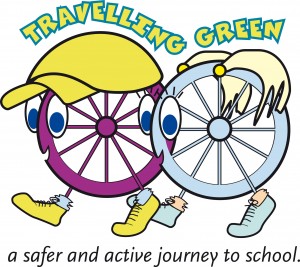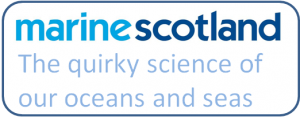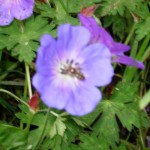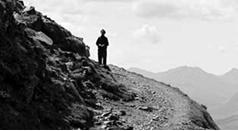

Global Citizenship blog
 Yesterday the national finals of the Euroquiz 2012 competition were held in the Scottish Parliament Debating Chamber in Edinburgh. Congratulations to St Mary’s Primary School, Duntocher, West Dunbartonshire, whose team won this year’s event; and well done to all the teams of Primary 6 pupils from around Scotland who took part in the regional heats and in the finals. The knowledge displayed by the students, and their skills in information retrieval, were very impressive for all of us who saw them in action at the various stages of the competition.
Yesterday the national finals of the Euroquiz 2012 competition were held in the Scottish Parliament Debating Chamber in Edinburgh. Congratulations to St Mary’s Primary School, Duntocher, West Dunbartonshire, whose team won this year’s event; and well done to all the teams of Primary 6 pupils from around Scotland who took part in the regional heats and in the finals. The knowledge displayed by the students, and their skills in information retrieval, were very impressive for all of us who saw them in action at the various stages of the competition.
The event was recorded by Scottish Parliament TV, and the archive video footage is now available for viewers on their website.
The Euroquiz competition has been organised annually by the Scottish European Educational Trust for some years, and continues to attract mass participation and enhance learning about aspects of the European Union.
MoreWith a month to go there is still time to take part in the inaugural documentary entitled “The UK’s Best Sustainable Schools”.
This film is being produced by Cycling4SEEd who will be visiting (by bicycle and other sustainable means of travel) schools from Lands End to John O’Groats and capturing on film the freshest ideas, the best practice, the most exciting plans and hopefully even the most exciting results of sustainability in schools.
Cycling4SEEd cannot visit every school in the country but there are still ways for you and your schools to be part of this very important film to encourage all schools to take up sustainability:
For details of how to get involved in any of these activities, please visit the SEED website at www.se-ed.org-uk. You can also follow the story of Cycling4SEEd’s journey along the backbone of the UK as they visit schools, hear stories, see sustainable projects and share ideas.
For all your enquiries, please email [email protected].
MoreA few very different opportunities for teachers to reflect on how to use film viewings and film-making as a tool for supporting global citizenship education:
With a good fit to current work in schools around Games Legacy and the Olympics, the Edinburgh Filmhouse has a schools-only showing of the African film ‘Town of Runners’ on Monday 28th May. This showing has been organised by Take One Action film festival, a charity which promotes the different perspectives offered by films from developing countries. The film tells the story of two Ethiopian girls struggling to become athletes in a town which has a history of producing great distance runners, and is reviewed in the Guardian.
Take One Action is also seeking secondary schools to participate in its Young Heroes action project between June and December 2012. It’s a residential and follow-on screening project for young people aged 15-21 and their educators or youth workers, and builds their capacity to consider global issues and use film to encourage wider debate.
Thirdly, the Northern Lights project aims to create Scotland’s first ever mass participation documentary, an innovative way to build a movie about contemporary Scotland. Basically it will be composed, and edited into a final feature-length film, from videos made by people all over the country and contributed to a common pool of rich material. Read this blog post for more detail and weblinks.
More![]() SQA has developed a new framework of broad, generic skills. The Skills for Learning, Skills for Life and Skills for Work framework is derived from Building the Curriculum 4.
SQA has developed a new framework of broad, generic skills. The Skills for Learning, Skills for Life and Skills for Work framework is derived from Building the Curriculum 4.
The framework outlines definitions of the five broad areas of generic skills that are essential for qualification development.
Dowload Skills for Learning, Skills for Life and Skills for Work Framework
The five broad areas are:
This new skills framework is being used in the development of qualifications that support Curriculum for Excellence. It will also assist with the design of assessment and learning and teaching methods. These skills sit alongside knowledge, understanding and subject based skills.
For more info see http://www.sqa.org.uk/sqa/45395.html
More Travelling Green is a complete six-week programme aimed at P5 level; it comes with lesson plans and wall charts. It gives children and their parents the skills and confidence to walk to school. Walking to school is good for children’s development as well and their physical and mental health. Travelling Green has strong Health and Wellbeing Curriculum links covering topics like for example; the circulatory and respiratory systems.
Travelling Green is a complete six-week programme aimed at P5 level; it comes with lesson plans and wall charts. It gives children and their parents the skills and confidence to walk to school. Walking to school is good for children’s development as well and their physical and mental health. Travelling Green has strong Health and Wellbeing Curriculum links covering topics like for example; the circulatory and respiratory systems.
For more information, see link below;
http://www.sustrans.org.uk/what-we-do/safe-routes-to-schools/whats-in-your-area/scotland/travelling-green
Recent research has shown that children who do Travelling Green are generally more physically active than children who do not. Increasing children’s daily physical activity is essential for tackling the obesity epidemic, one of the key challenges facing Scotland’s population as described in Scotland’s Chief Medical Officer’s annual report. We need to make active modes of travel children’s first choice and make physical activity an everyday habit for Scottish children.
It has been shown that active children become active adults. Physical activity has recently been made a national indicator in Scotland. Walking to school is an excellent everyday opportunity for children to get the recommended amount of physical activity which is vital for maintaining their health and wellbeing. In addition, active children do better at school. When asked children want to be more physically active and they want to travel actively to school. Travelling Green is a resource that increases children’s physical activity in small manageable steps.
The resource was popular with teachers; they gave the following feedback;
“Well thought out and children benefited from it, many changed their route and started walking together in groups”.
“Easy to use with lots of additional resources and support materials”
“Good resource, making cross-curricular links”.
The Travelling Green resources were developed in partnership by West Dunbartonshire Council and are available for free to all Scottish schools.
There are also free Travelling Green flipcharts for interactive whiteboards available from Promethean Planet (see included step by step guide). We also include a guide for the Travelling Green resources and a flyer to circulate to your schools.
To get the resources sent to your school contact;
[email protected] 0131 346 9777
More Education Scotland hosted an event in partnership with the Ellen MacArthur Foundation and the University of Edinburgh on 30th March 2012 at the Menzies Hotel in Glasgow to explore how the concept of a circular economy can be used as a focus for sustainable development education and interdisciplinary learning.
Education Scotland hosted an event in partnership with the Ellen MacArthur Foundation and the University of Edinburgh on 30th March 2012 at the Menzies Hotel in Glasgow to explore how the concept of a circular economy can be used as a focus for sustainable development education and interdisciplinary learning.
The circular economy is a generic term for an industrial economy that is, by design or intention, restorative and in which materials flows are of two types, biological nutrients, designed to re-enter the biosphere safely, and technical nutrients, which are designed to circulate at high quality without entering the biosphere. The circular economy proposes a coherent framework for re-thinking and re-building a positive vision of the future.
Find out more about the Ellen MacArthur Foundation and the circular economy by watching this short video: www.ellenmacarthurfoundation.org/convince_me
The presentations and resources from the event are now available on Glow at https://portal.glowscotland.org.uk/establishments/nationalsite/Climate%20Change/Lists/Pages/Resources.aspx
More Thank you once again to the 58 schools and 1700 pupils who took part in our Marine Science Glow meet on 23 Feb 2012 organised in partnership with Marine Scotland.
Thank you once again to the 58 schools and 1700 pupils who took part in our Marine Science Glow meet on 23 Feb 2012 organised in partnership with Marine Scotland.
Congratulations too to Abbi from St Mary’s Primary School in Bannockburn who won her school a visit by the Edinburgh Science Festival Marine Detectives Workshop. Abbi’s question was chosen by the judges as the winning question on the day from the hundreds that were received. She asked, ‘Do whales have bellybuttons?’
If you want to find out the answer to this question and all the other questions asked by pupils on the day then visit: http://www.scotland.gov.uk/Topics/marine/education/faq/creatures
The answers to the questions put directly to the presenters on the day are also available and can be downloaded from the link below.
Download presenters answers to Glow questions >>
Special thanks to Marine Scotland all all their staff who have gone to great lengths to provide answers!
More Scotland’s precious wildlife and landscapes are vitally important and Scottish Natural Heritage (SNH) want to offer you the chance to get out and about and experience them!
Scotland’s precious wildlife and landscapes are vitally important and Scottish Natural Heritage (SNH) want to offer you the chance to get out and about and experience them!
SNH have teamed up with a range of other people to bring you a wide variety of organised and fun events during Scottish Biodiversity Week.
Every year there is an astonishing range of events on offer. Here are just a few examples of the kinds of things that you can do:
Visit SNH’s Events Diary to find out what’s on - http://www.snh.gov.uk/protecting-scotlands-nature/safeguarding-biodiversity/events/
More Global storylines is an exciting, innovative three year project in which storyline and drama are used to embed an exploration of global issues into the learning experiences of pupils in Glasgow.
Global storylines is an exciting, innovative three year project in which storyline and drama are used to embed an exploration of global issues into the learning experiences of pupils in Glasgow.
Now in its second year, teachers from 17 Glasgow primary schools are exploring challenging global issues with their pupils, within the safe fictional community that storyline offers. Each global storyline uniquely combines global citizenship methodologies with both the pedagogies of “Storyline” and the associated pedagogies of process drama.
Learners are supported to think creatively, make connections, solve problems, and examine values and attitudes.
The event will be introduced by Steve Bell, Co-creator of Storyline, followed by a presentation by the Global Storylines Team on the scope of the project, the methodology, learning contexts and research findings.
Displays and videos of children’s work, and presentations from the project teachers, help to give a flavour of the project.
Venue & Registration:
Thursday 3rd May 2012, 2.30-5.00pm
University of Strathclyde, McCance Building
If you would like to attend this event, please register at:
http://ewds.strath.ac.uk/engage/Events/GlasgowGlobalStorylinesProject.aspx
More Venue: Glen Strae (near Dalmally), Argyll, Scotland
Venue: Glen Strae (near Dalmally), Argyll, Scotland
Cost: £100
Places: 15
Dates: 25th – 27th May 2012
Times: arrival from 7pm on the Friday, finish before 5pm Sunday
Spend a weekend in a beautiful glen honing your outdoor learning skills. Find out how to get the most from the places you use, and learn practices which can bring out the unique features of your locality and context. Share a stimulating workshop with other educators and journey in a rich landscape full of stories.
Ground - Develop a sense of how to work with the places you take your school/group as more than just venues. Insights from ‘place-based education’ will help you answer the question ‘why here?’ and get the most from the locality in which you work.
Experience – Walk and discuss the ethics of working ‘in, about and for’ places. Look at ways of introducing, working with and reviewing learning in the landscape.
Develop – Model and discuss techniques and exercises for all age ranges which bring out the varied elements of place: history, land-use, ecology and personal connections.
Understand – Discuss the ideas behind this approach, asking what is a ‘sense of place?’ and investigating the curriculum and educational links to topics such as sustainability, and personal well-being.
We will be camping so please bring your own food, outdoor clothing and camping equipment. Transport is possible by train (Glasgow – Oban line), transfers between Dalmally Station and Glen Strae can be arranged.
A deposit of £50 will reserve your place please contact [email protected] for details
Deposits are non-returnable and full balances will be due 4 weeks before the course – we recommend you take out insurance for cancellation
Any queries please contact [email protected]
More
Find us on